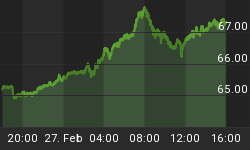An astounding 10 percent of all outstanding personal debt in the United States comes from the unbearable $1.4-trillion student debt load—a high-dollar fact that could bring the housing market to its knees and threaten the entire economy.
Of America’s student debt holders, an alarming 83 percent cite this debt as the reason they haven’t purchased a home, according to the National Association of Realtors.
“The magnitude of the debt continues to grow in size and share of the overall debt in the economy. While this amount of debt has risen, the homeownership rate has fallen, and fallen more steeply among younger generations,” the NAR said in its year-end report on debt and the housing market.
Debt is a shackle …
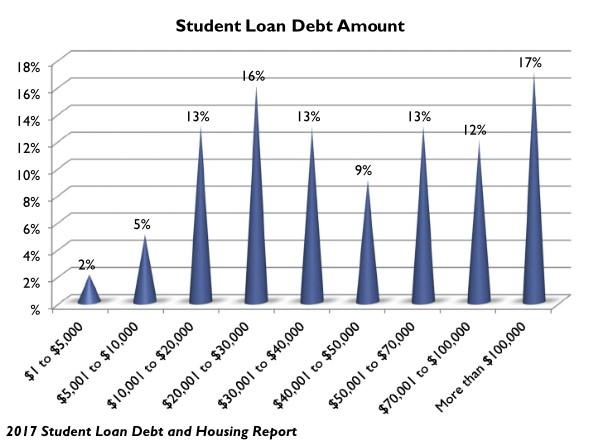
(Click to enlarge)
Those shackles aren’t just for individuals, and they’re tightening persistently:
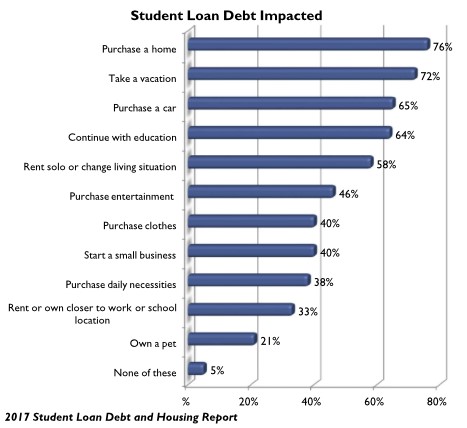
As such, student debt isn’t just a problem for … students. It’s a problem most critically for the housing industry.
According to Statista, 90 percent of millennials with outstanding student loans of more than 100,000 U.S. dollars said their debt impacted their ability to buy a home. Related: Nearly One-Third Of U.S. Lottery Winners Declare Bankruptcy
What the housing market is eyeing is this statistic: 63 percent of student debt holders said they would put money towards a new home without that debt.
At a time when home-buying is getting even trickier thanks to rising interest rates and tax cuts that in some cases negatively impact the housing market, the number of student debt holders to forego this option is likely to be even greater.
And it’s not just realtors who are worried.
Philadelphia Federal Reserve President Patrick Harker recently told CNBC that higher delinquency rates on student loans will discourage them from even more spending.
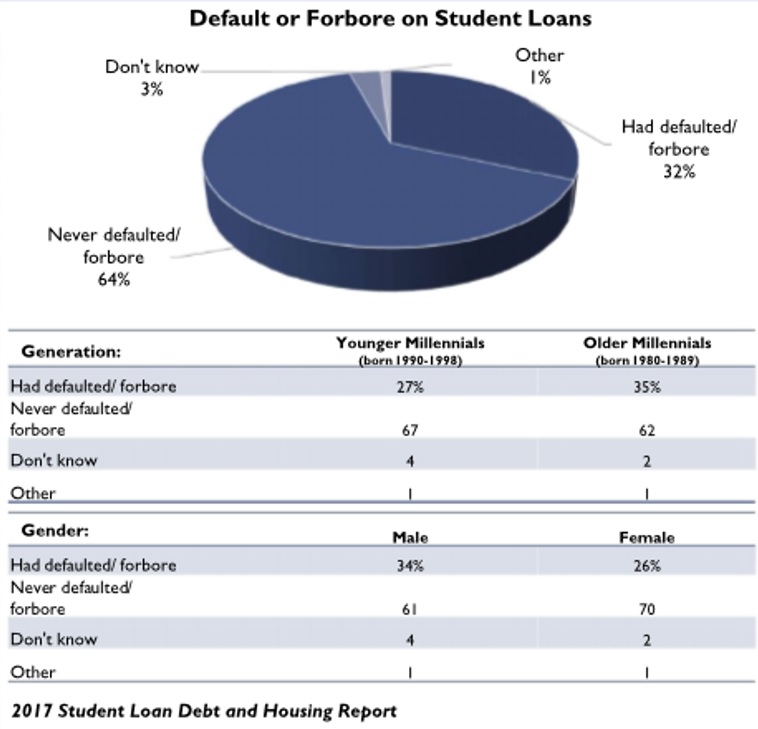
(Click to enlarge)
"I am concerned that the looming shadow of student debt, coupled with increasing uncertainty about loan forgiveness programs and income-driven repayment, may dissuade some potential students, particularly those from low- and middle-income families, from going to college," Harker said in prepared remarks.
"If the ability of our younger generations to participate in the economy is adversely affected, so, overall, is our economy," he added at Saint Joseph's University in Philadelphia. Related: What Does A Billionaire's Bucket List Look Like?
Economists say that those who attended college during and following the recession were especially hit hard because they had to borrow more as their parents were unable to fund their education.
And it’s a problem that continues to compound:
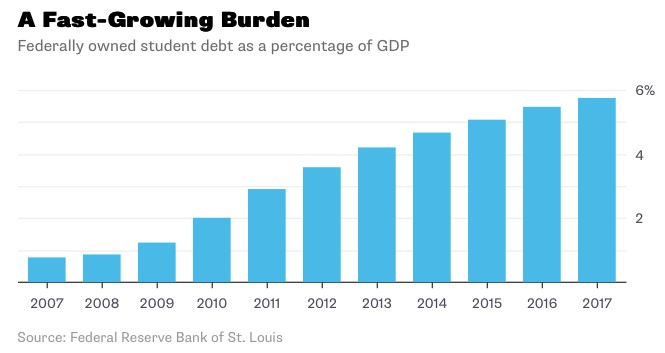
(Click to enlarge)
The government wants its money back, but the housing market will lose big as a result.
Forgiveness isn’t really in the cards, so the housing market will take the hit for a long time to come.
In March, Congress authorized a $350-million plan for the Public Service Loan Forgiveness program. But it’s a drop in the $1.4-trillion bucket, and there are plenty of strings attached. Defaulters won’t make the cut, and only those with public service jobs are eligible. Even then, the money won’t stretch too far.
By Josh Owens for Safehaven.com
More Top Reads From Oilprice.com:




